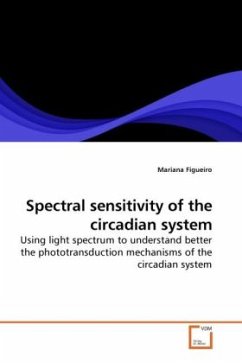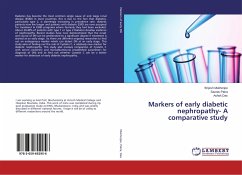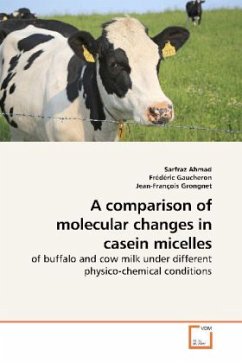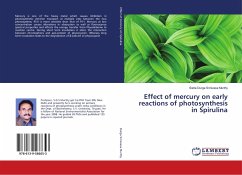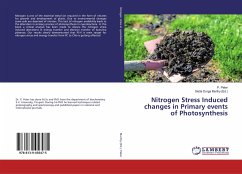
Study of early spectral changes in cell transformation
Study of early spectral changes in cell transformation using mathematical models
Versandkostenfrei!
Versandfertig in 6-10 Tagen
39,99 €
inkl. MwSt.

PAYBACK Punkte
20 °P sammeln!
Fourier Transform Infra-Red Microspectroscopy and Light Induced Fluorescence are two potentially powerful analytical methods for identifying the spectral properties of biological activity in cells. The goal of the present research is the implementation of both spectroscopic methods in tandem in order to study early spectral changes accompanying cancerous transformation. As a model for this purpose we used two kinds of cell cultures: Murine Fibroblast cell line and Murine Embryonic Fibroblast cells. The cell cultures were infected with Murine Sarcoma Virus, which induced cancerous transformati...
Fourier Transform Infra-Red Microspectroscopy and
Light Induced Fluorescence are two potentially
powerful analytical methods for identifying the
spectral properties of biological activity in cells.
The goal of the present research is the
implementation of both spectroscopic methods in
tandem in order to study early spectral changes
accompanying cancerous transformation.
As a model for this purpose we used two kinds of
cell cultures: Murine Fibroblast cell line
and Murine Embryonic Fibroblast cells. The cell
cultures were infected with Murine
Sarcoma Virus, which induced cancerous
transformation. The spectral measurements were taken
at various post infection time intervals.
Our results showed FTIR-MSP and LIF spectroscopic
methods as promising optical tools for diagnosis of
early stages of malignancy which is essential
requirement for successful cancer treatment that
cannot be accomplished by conventional methods (such
as CT or MRI). Moreover, these methods are
complimentary and shed light on the basic cellular
metabolic changes occurring during the
transformation, giving a better understanding of the
carcinogenesis process.
Light Induced Fluorescence are two potentially
powerful analytical methods for identifying the
spectral properties of biological activity in cells.
The goal of the present research is the
implementation of both spectroscopic methods in
tandem in order to study early spectral changes
accompanying cancerous transformation.
As a model for this purpose we used two kinds of
cell cultures: Murine Fibroblast cell line
and Murine Embryonic Fibroblast cells. The cell
cultures were infected with Murine
Sarcoma Virus, which induced cancerous
transformation. The spectral measurements were taken
at various post infection time intervals.
Our results showed FTIR-MSP and LIF spectroscopic
methods as promising optical tools for diagnosis of
early stages of malignancy which is essential
requirement for successful cancer treatment that
cannot be accomplished by conventional methods (such
as CT or MRI). Moreover, these methods are
complimentary and shed light on the basic cellular
metabolic changes occurring during the
transformation, giving a better understanding of the
carcinogenesis process.



